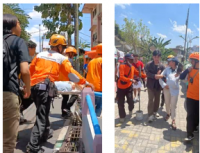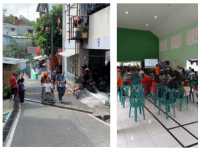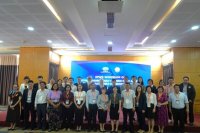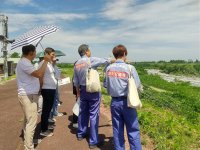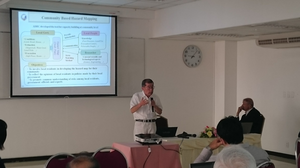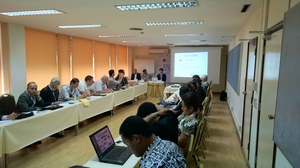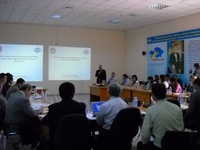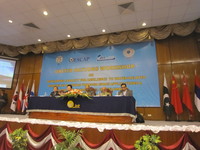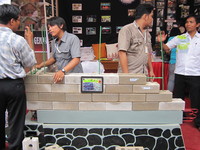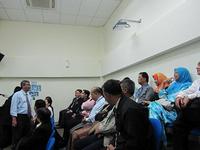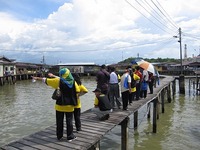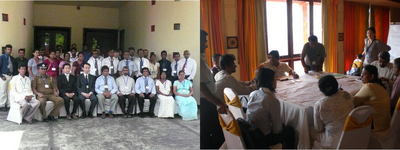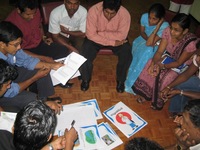7 September 2024 (Yogyakarta, Indonesia)
As part of the "Joint Development of Citizen Empowerment Program for Disaster Risk Reduction in Asia" project, conducted by the Kansai University of International Studies (KUIS) with funding from the Toyota Foundation, the ADRC team participated in a community-based disaster management drill utilising ICT in Yogyakarta, Indonesia on Saturday, 7 September 2024. ADRC served as a supporting organisation for the implementation of the project.
The drill targeted the Jogoyudan community along the Code River in Yogyakarta City, which is vulnerable to disasters such as flooding and cold lava flows from volcanic ash. KUIS and the local University of Atma Jaya Yogyakarta (UAJY) coordinated with the provincial/municipal disaster management agency (BPBD) and the community. Students from KUIS and UAJY actively participated in the drill activities. Although the short preparation time limited sufficient coordination efforts, each party cooperated in the evacuation drills and devised activities such as supporting and evacuating the injured, pregnant women and physically disabled persons.
It was conducted using the community disaster information sharing system (geoBingAn + WhatsApp system) launched by the ADRC in the ASEAN project in Malaysia last year (See ADRC Highlights Vol. 368 and 370). By registering via WhatsApp, which people use every day, the system enables simultaneous broadcasting to the registrant's WhatsApp and collection of information in the form of text, photos and videos from registrants via WhatsApp. It is an easy-to-use system that enables two-way information exchange on WhatsApp.
In addition to information sharing via radio, which BPBD normally uses, information was uploaded by the participants through WhatsApp as needed. BPBD and the community members found the system through WhatsApp to be a very convenient and user-friendly platform for information sharing, as they were already familiar with using WhatsApp. Even after the drill, BPBD asked some questions about future collaboration and expressed interest in continuing to use this system.
As noted above, due to the limited preparation, the local government officials were not able to fully utilise the system during the drill. The results of the ICT-utilised drill were reported at the international workshop "Asian Conference on Civil Disaster Reduction and Response (ACDRI)" under the Toyota-funded project. The ICT-utilised disaster risk reduction event will be continued in the next activity with universities in Malaysia.
(2024/09/14 15:00)


